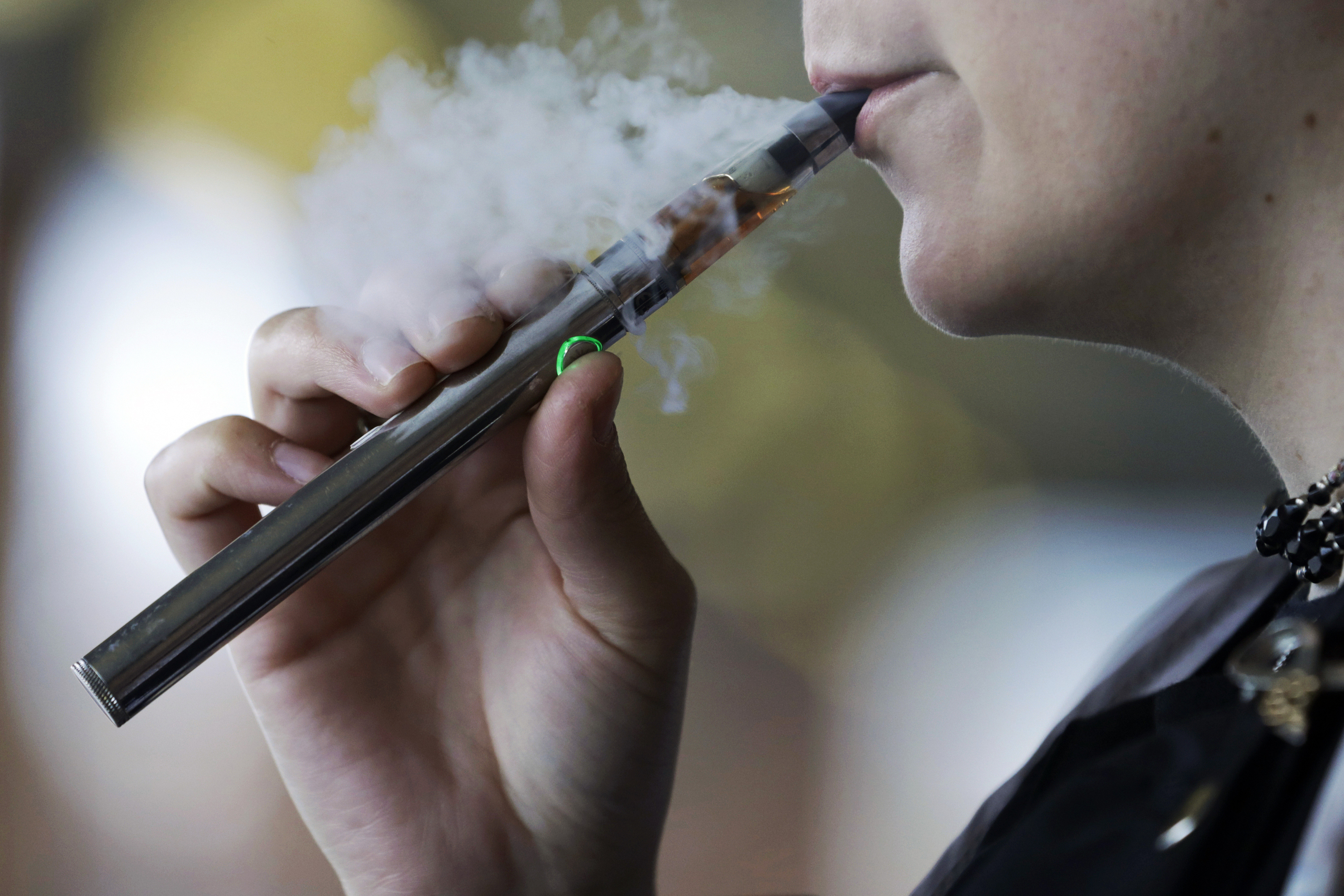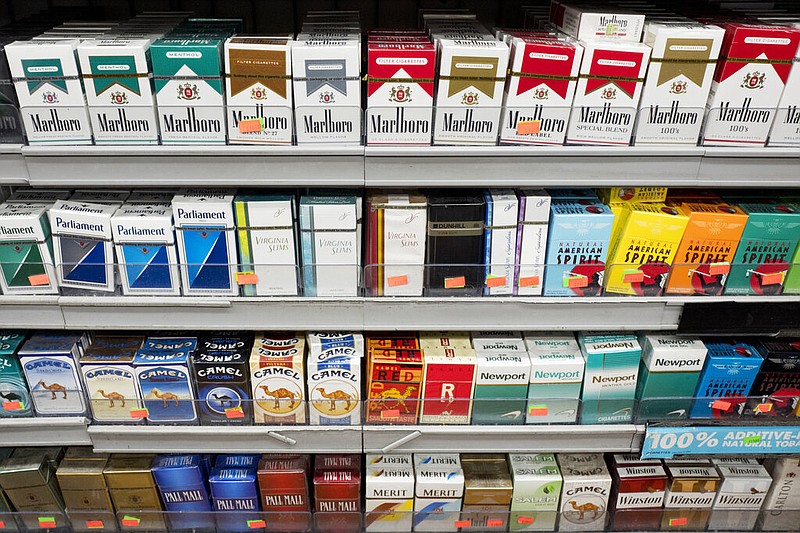Big Tobacco took a big hit as the federal government raised the legal tobacco purchasing age to 21 in December and on Thursday banned many popular electronic cigarette flavors, upstaging what some state lawmakers had planned for 2020.
State Rep. Robin Smith's signature bill in the upcoming legislative session centered on raising the legal age to buy tobacco and e-cigarette products in Tennessee from 18 to 21. Instead, the General Assembly now will be tasked with creating a mechanism to enforce the new purchasing law, which President Donald Trump signed on Dec. 20, as well as bolstering education efforts around nicotine use.
"There still remains a need for education for students as it relates to addiction, and that goes for any substance," Smith, R-Hixson, said, adding that too many young people believe e-cigarettes are harmless.
"They're safer than [traditional] tobacco but not safe," she said. "The stimulant effect in the brain that has people turn to nicotine is the same that people feel with cocaine. That's why it's so very difficult to break nicotine addiction."
E-cigarettes are battery-powered devices that typically heat a flavored nicotine solution into an inhalable aerosol. They have been pitched to adults as a less-harmful alternative to traditional cigarettes, but have also contributed to skyrocketing youth nicotine use and an outbreak of severe vaping-associated lung illness.
Health advocates have long called for a crackdown on flavored e-cigarettes that appeal to youth, and their pleas were answered in part last week when the Trump administration announced that it will prohibit fruit, candy, mint and dessert flavors from small, cartridge-based e-cigarettes favored by children and teens. However, the move was met with scrutiny by health advocates who say the administration didn't go far enough and caved to industry pressure.
 FILE - In this Oct. 4, 2019, file photo, a woman using an electronic cigarette exhales in Mayfield Heights, Ohio. With one in four teenagers now using e-cigarettes, underage vaping is universally condemned, and the federal government considers it an epidemic. But some other researchers believe recent trends continue to show vaping’s promise as a tool to steer millions of adult smokers away from cigarettes, the nation’s leading cause of death. (AP Photo/Tony Dejak, File)
FILE - In this Oct. 4, 2019, file photo, a woman using an electronic cigarette exhales in Mayfield Heights, Ohio. With one in four teenagers now using e-cigarettes, underage vaping is universally condemned, and the federal government considers it an epidemic. But some other researchers believe recent trends continue to show vaping’s promise as a tool to steer millions of adult smokers away from cigarettes, the nation’s leading cause of death. (AP Photo/Tony Dejak, File)The flavor restrictions only apply to e-cigarettes that use pre-filled nicotine cartridges mainly sold at gas stations and convenience stores. The small, discrete devices are the most popular brand among underage users.
The partial ban will allow menthol and tobacco-flavored e-cigarettes to remain on the market. The flavor restrictions also won't affect the larger specialty devices sold at vape shops, which typically don't admit customers under 21. These tank-based systems allow users to fill the device with the flavor of their choice. Sales of these devices represent an estimated 40% of the U.S. vaping business, with sales across some 15,000 to 19,000 shops.
"We have to protect our families," Trump told reporters on Tuesday, ahead of the announcement. "At the same time, it's a big industry. We want to protect the industry."
Smith said the new federal restrictions will go further to curb the youth vaping crisis than her bill would have.
"In the bill that I was carrying, there were no bans of anything at all," she said. "We chose the easier lift in this legislative package. But now that the federal government has done that, I do applaud the federal government's ban. ... There's no question that the target audience [for flavored e-cigarettes] is middle and high schoolers."
The Associated Press contributed to this story.
Contact Elizabeth Fite at efite@timesfreepress.com or 423-757-6673.
